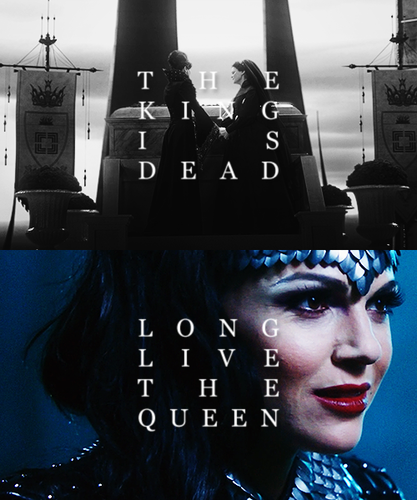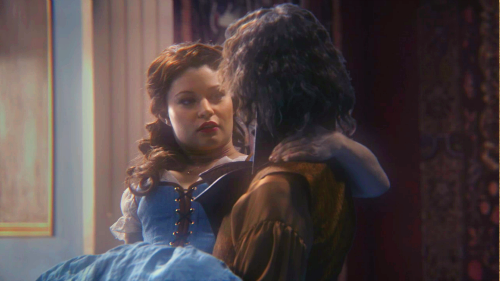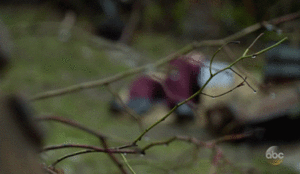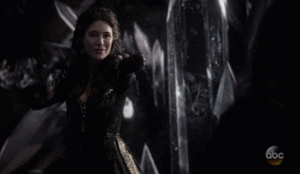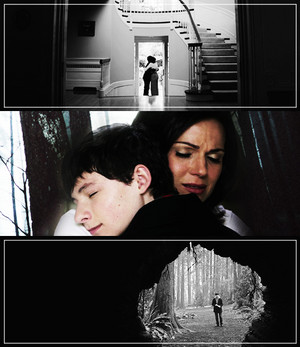This is a glossary of sorts to my article "Is Killing Ever Justified?". Please read it first link.
OUAT Legal Dictionary
"There are actually 4 kinds of homicide: Felonious, accidental, justifiable, and praiseworthy. It makes little difference to the victim which sort they die of; the classification is mostly for the benefit of lawyers."
By US definition:
homicide n. the killing of a human being due to the act or omission of another. Included among homicides are murder and manslaughter, but not all homicides are a crime, particularly when there is a lack of criminal intent. Non-criminal homicides include killing in self-defense, a misadventure like a hunting accident or automobile wreck without a violation of law like reckless driving, or legal (government) execution. Suicide is a homicide, but in most cases there is no one to prosecute if the suicide is successful. Assisting or attempting suicide can be a crime.
(Read More: link)
murder n. the killing of a human being by a sane person, with intent, malice aforethought (prior intention to kill the particular victim or anyone who gets in the way), and with no legal excuse or authority. In those clear circumstances, this is first degree murder.
By statute many states make killings in which there is torture, movement of the person (kidnapping) before the killing, as an incident to another crime (as during a hold-up or rape), and the death of a police officer or prison guard all first degree murders with or without premeditation, and with malice presumed.
Second degree murder is such a killing without premeditation, as in the heat of passion or in a sudden quarrel or fight. Malice in second degree murder may be implied from a death due to the reckless lack of concern for the life others (such as firing a gun into a crowd, or bashing someone with any deadly weapon).
Depending on the circumstances and state laws, murder in the first or second degree may be chargeable to a person who did not actually kill, but was involved in a crime with a partner who actually did the killing or someone died as the result of the crime. (Example: In a liquor store stick-up in which the clerk shoots back at the hold-up man and kills a bystander, the armed robber can be convicted of at least second degree murder.
To be murder the victim must die within a year of the attack. Death of an unborn child who is "quick" (fetus is moving) can be murder, provided there was premeditation, malice, and no legal authority. Thus, abortion is not murder under the law. (Example: Jack Violent shoots his pregnant girlfriend, killing the fetus). Manslaughter, both voluntary and involuntary, lacks the element of malice aforethought.
(Read More: link)
malice aforethought n. 1) the conscious intent to cause death or great bodily harm to another person before a person commits the crime. Such malice is a required element to prove first degree murder. 2) a general evil and depraved state of mind in which the person is unconcerned for the lives of others. Thus, if a person uses a gun to hold up a bank and an innocent bystander is killed in a shoot-out with police, there is malice aforethought.
manslaughter n. the unlawful killing of another person without premeditation or so-called "malice aforethought" (an evil intent prior to the killing). It is distinguished from murder (which brings greater penalties) by lack of any prior intention to kill anyone or create a deadly situation. There are two levels of manslaughter: voluntary and involuntary. Voluntary manslaughter includes killing in heat of passion or while committing a felony. Involuntary manslaughter occurs when a death is caused by a violation of a non-felony, such as reckless driving (called "vehicular manslaughter"). Examples: Eddy Hothead gets into a drunken argument in a saloon with his acquaintance Bob Bonehead, and Hothead hits Bonehead over the head with a beer bottle, causing internal bleeding and death. Brent Burgle sneaks into a warehouse intent on theft and is surprised by a security man, whom Burgle knocks down a flight of stairs, killing him. Both are voluntary manslaughter. However, if either man had used a gun, a murder charge is most likely since he brought a deadly weapon to use in the crime. The immediate rage in finding a loved one in bed with another, followed by a killing before the passion cools usually limits the charge to voluntary manslaughter and not murder, but prior attacks could convince a District Attorney and a jury that the killing was not totally spontaneous. Lenny Leadfoot drives 70 miles per hour on a twisting mountain road, goes off a cliff and his passenger is killed in the crash. Leadfoot can be charged with involuntary manslaughter.
(Read More: link)
justifiable homicide n. a killing without evil or criminal intent, for which there can be no blame, such as self-defense to protect oneself or to protect another, or the shooting by a law enforcement officer in fulfilling his/her duties. This is not to be confused with a crime of passion or claim of diminished capacity which refer to defenses aimed at reducing the penalty or degree of crime.
(Read More: link)
crime of passion n. a defendant's excuse for committing a crime due to sudden anger or heartbreak, in order to eliminate the element of "premeditation." This usually arises in murder or attempted murder cases, when a spouse or sweetheart finds his/her "beloved" having sexual intercourse with another and shoots or stabs one or both of the coupled pair. To make this claim the defendant must have acted immediately upon the rise of passion, without the time for contemplation or allowing for "a cooling of the blood." It is sometimes called the "Law of Texas" since juries in that state are supposedly lenient to cuckolded lovers who wreak their own vengeance. The benefit of eliminating premeditation is to lessen the provable homicide to manslaughter with no death penalty and limited prison terms. An emotionally charged jury may even acquit the impassioned defendant.
adultery n. consensual sexual relations when one of the participants is legally married to another. In some states it is still a crime and is grounds for divorce for the spouse of the married adulterer. The criminal charges are almost never brought, and in those states in which there is no-fault divorce (or dissolution), adultery is legally not relevant. Until the 1970s, in community property states adultery was grounds for giving the person cheated upon most of the couple's property, often resulting in lurid and long trials and grist for scandal newspapers.
(Read More: link)
honor killing n. an ancient tradition still sometimes observed; a male member of the family kills a female relative for tarnishing the family image
vigilante n. someone who takes the law into his/her own hands by trying and/or punishing another person without any legal authority. In the 1800s groups of vigilantes dispensed "frontier justice" by holding trials of accused horse-thieves, rustlers and shooters, and then promptly hanging the accused if "convicted." A mother who shoots the alleged molester of her child is a vigilante.
Prosecution of Vigilantes
"The foundation of the American legal system rests on the Rule of Law, a concept embodied in the notion that the United States is a nation of laws and not of men. Under the rule of law, laws are thought to exist independent of, and separate from, human will. Even when the human element factors into legal decision making, the decision maker is expected to be constrained by the law in making his or her decision. In other words, police officers, judges, and juries should act according to the law and not according to their personal preferences or private agendas.
State and federal governments are given what amounts to a Monopoly over the use of force and violence to implement the law. Private citizens may use force and violence to defend their lives and their property, and in some instances the lives and property of others, but they must do so under the specific circumstances allowed by the law if they wish to avoid being prosecuted for a crime themselves."
(Read More: link)
OUAT Legal Dictionary
"There are actually 4 kinds of homicide: Felonious, accidental, justifiable, and praiseworthy. It makes little difference to the victim which sort they die of; the classification is mostly for the benefit of lawyers."
By US definition:
homicide n. the killing of a human being due to the act or omission of another. Included among homicides are murder and manslaughter, but not all homicides are a crime, particularly when there is a lack of criminal intent. Non-criminal homicides include killing in self-defense, a misadventure like a hunting accident or automobile wreck without a violation of law like reckless driving, or legal (government) execution. Suicide is a homicide, but in most cases there is no one to prosecute if the suicide is successful. Assisting or attempting suicide can be a crime.
(Read More: link)
murder n. the killing of a human being by a sane person, with intent, malice aforethought (prior intention to kill the particular victim or anyone who gets in the way), and with no legal excuse or authority. In those clear circumstances, this is first degree murder.
By statute many states make killings in which there is torture, movement of the person (kidnapping) before the killing, as an incident to another crime (as during a hold-up or rape), and the death of a police officer or prison guard all first degree murders with or without premeditation, and with malice presumed.
Second degree murder is such a killing without premeditation, as in the heat of passion or in a sudden quarrel or fight. Malice in second degree murder may be implied from a death due to the reckless lack of concern for the life others (such as firing a gun into a crowd, or bashing someone with any deadly weapon).
Depending on the circumstances and state laws, murder in the first or second degree may be chargeable to a person who did not actually kill, but was involved in a crime with a partner who actually did the killing or someone died as the result of the crime. (Example: In a liquor store stick-up in which the clerk shoots back at the hold-up man and kills a bystander, the armed robber can be convicted of at least second degree murder.
To be murder the victim must die within a year of the attack. Death of an unborn child who is "quick" (fetus is moving) can be murder, provided there was premeditation, malice, and no legal authority. Thus, abortion is not murder under the law. (Example: Jack Violent shoots his pregnant girlfriend, killing the fetus). Manslaughter, both voluntary and involuntary, lacks the element of malice aforethought.
(Read More: link)
malice aforethought n. 1) the conscious intent to cause death or great bodily harm to another person before a person commits the crime. Such malice is a required element to prove first degree murder. 2) a general evil and depraved state of mind in which the person is unconcerned for the lives of others. Thus, if a person uses a gun to hold up a bank and an innocent bystander is killed in a shoot-out with police, there is malice aforethought.
manslaughter n. the unlawful killing of another person without premeditation or so-called "malice aforethought" (an evil intent prior to the killing). It is distinguished from murder (which brings greater penalties) by lack of any prior intention to kill anyone or create a deadly situation. There are two levels of manslaughter: voluntary and involuntary. Voluntary manslaughter includes killing in heat of passion or while committing a felony. Involuntary manslaughter occurs when a death is caused by a violation of a non-felony, such as reckless driving (called "vehicular manslaughter"). Examples: Eddy Hothead gets into a drunken argument in a saloon with his acquaintance Bob Bonehead, and Hothead hits Bonehead over the head with a beer bottle, causing internal bleeding and death. Brent Burgle sneaks into a warehouse intent on theft and is surprised by a security man, whom Burgle knocks down a flight of stairs, killing him. Both are voluntary manslaughter. However, if either man had used a gun, a murder charge is most likely since he brought a deadly weapon to use in the crime. The immediate rage in finding a loved one in bed with another, followed by a killing before the passion cools usually limits the charge to voluntary manslaughter and not murder, but prior attacks could convince a District Attorney and a jury that the killing was not totally spontaneous. Lenny Leadfoot drives 70 miles per hour on a twisting mountain road, goes off a cliff and his passenger is killed in the crash. Leadfoot can be charged with involuntary manslaughter.
(Read More: link)
justifiable homicide n. a killing without evil or criminal intent, for which there can be no blame, such as self-defense to protect oneself or to protect another, or the shooting by a law enforcement officer in fulfilling his/her duties. This is not to be confused with a crime of passion or claim of diminished capacity which refer to defenses aimed at reducing the penalty or degree of crime.
(Read More: link)
crime of passion n. a defendant's excuse for committing a crime due to sudden anger or heartbreak, in order to eliminate the element of "premeditation." This usually arises in murder or attempted murder cases, when a spouse or sweetheart finds his/her "beloved" having sexual intercourse with another and shoots or stabs one or both of the coupled pair. To make this claim the defendant must have acted immediately upon the rise of passion, without the time for contemplation or allowing for "a cooling of the blood." It is sometimes called the "Law of Texas" since juries in that state are supposedly lenient to cuckolded lovers who wreak their own vengeance. The benefit of eliminating premeditation is to lessen the provable homicide to manslaughter with no death penalty and limited prison terms. An emotionally charged jury may even acquit the impassioned defendant.
adultery n. consensual sexual relations when one of the participants is legally married to another. In some states it is still a crime and is grounds for divorce for the spouse of the married adulterer. The criminal charges are almost never brought, and in those states in which there is no-fault divorce (or dissolution), adultery is legally not relevant. Until the 1970s, in community property states adultery was grounds for giving the person cheated upon most of the couple's property, often resulting in lurid and long trials and grist for scandal newspapers.
(Read More: link)
honor killing n. an ancient tradition still sometimes observed; a male member of the family kills a female relative for tarnishing the family image
vigilante n. someone who takes the law into his/her own hands by trying and/or punishing another person without any legal authority. In the 1800s groups of vigilantes dispensed "frontier justice" by holding trials of accused horse-thieves, rustlers and shooters, and then promptly hanging the accused if "convicted." A mother who shoots the alleged molester of her child is a vigilante.
Prosecution of Vigilantes
"The foundation of the American legal system rests on the Rule of Law, a concept embodied in the notion that the United States is a nation of laws and not of men. Under the rule of law, laws are thought to exist independent of, and separate from, human will. Even when the human element factors into legal decision making, the decision maker is expected to be constrained by the law in making his or her decision. In other words, police officers, judges, and juries should act according to the law and not according to their personal preferences or private agendas.
State and federal governments are given what amounts to a Monopoly over the use of force and violence to implement the law. Private citizens may use force and violence to defend their lives and their property, and in some instances the lives and property of others, but they must do so under the specific circumstances allowed by the law if they wish to avoid being prosecuted for a crime themselves."
(Read More: link)





